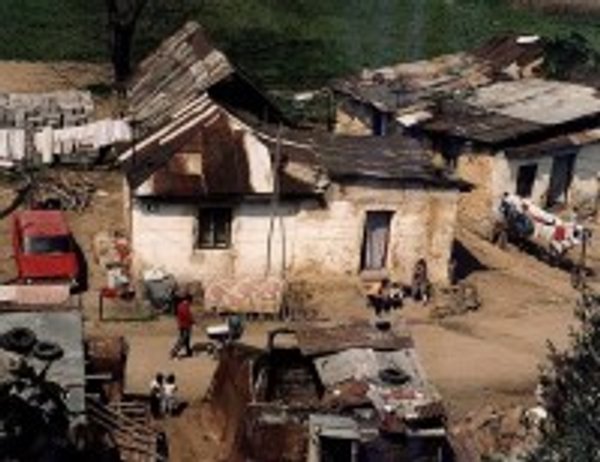Marcelo Sheppard
College student
Montevedio, Uruguay
* * * * * * *
When we were in our fourth year of secondary education, the people in Flama, an Opus Dei club for schoolboys, asked some friends of mine and I if we would like to help in the catechism classes being given in a parish in one of the poorer suburbs of Montevideo. At first we found it quite hard as it meant “sacrificing” our Saturday mornings which many of us use to have a lie-in.
We started meeting up the day before to prepare the topic we were going to teach for that week. They were the first classes we’d ever taught in our lives, and our pupils were not naturally attentive, so we had to prepare them really well.

The people at Flama Club explained to us in detail how important those catechism classes were and how much St Josemaría loved catechism-teaching. When Opus Dei was beginning, the Founder used to go out with groups of young people to teach Christian doctrine in the outlying districts of Madrid.
I began by helping with the catechism classes in Punta Rieles, then in Euskalerria, and finally in the district known as “14 Km”. In Punta Rieles some nuns let us use some rooms next to their convent for the classes. Punta Rieles is close to “14 Km” so we went there to invite more boys to come to the classes. The next week the “14 Km” boys got into the convent store-room and ate the fruit jelly the sisters had prepared for tea. We had to find a solution, so we decided to teach in “14 Km” itself, and teach only the more manageable ones in the convent rooms. So we ended up with two catechism groups.
“14 Km” is a shanty-town. The people live in shacks they make out of sticks and sheeting. The sanitation is unreliable and the other side of the road is a trash dump. We very well knew that the town’s attitudes were not exactly positive, and we had to explain our intentions very clearly before they would let us give classes there. Most of the people in “14 Km”, if they are even baptized, go to the Sunday schools run by certain sects or non-Catholic groups, and it can be hard to persuade them to live in accordance with their faith.
Five of us went together for the first class there. We divided the kids into groups by age, and delivered the classes in an open space close to the trash dump, as there was nowhere else. Then we started a game of football. At the end of the first half, Juancho started a fight with Anthony over a fault the referee hadn’t seen, and soon after that they drove us away by throwing stones at us, shouting, “Don’t come back!” In a way, it reminded us of the time when St Josemaría had stones thrown at him just because he was wearing a cassock, especially when he went to the King’s Hospital in Madrid.
After two or three more attempts, they stopped stoning us on sight. With a little bit more effort, and a lot of grace from God, the kids prepared for Communion and some of them received our Lord in the Eucharist for the first time.
Years later, you realize how much good those catechism classes did to the kids: it gives them real support in their faith and morals, which they will never forget. What we could do for them at that age was not getting them jobs or solving their housing problems, but teaching them the truth of Christ.
What I’d most like to stress is that in the final analysis, the ones who really were strengthened were us, the teachers. We learnt so much from those kids. We realized how urgent it was to overcome the ignorance about Christ’s teachings, we came face to face with real poverty and we suffered together with them. All of that inspired us to fight to take our country forward.
* * * * *
Extract from an article published in “St Josemaría & the Uruguayans”, ed. Maria Magdalena Pareja Silveira, Montevideo, 2002.
